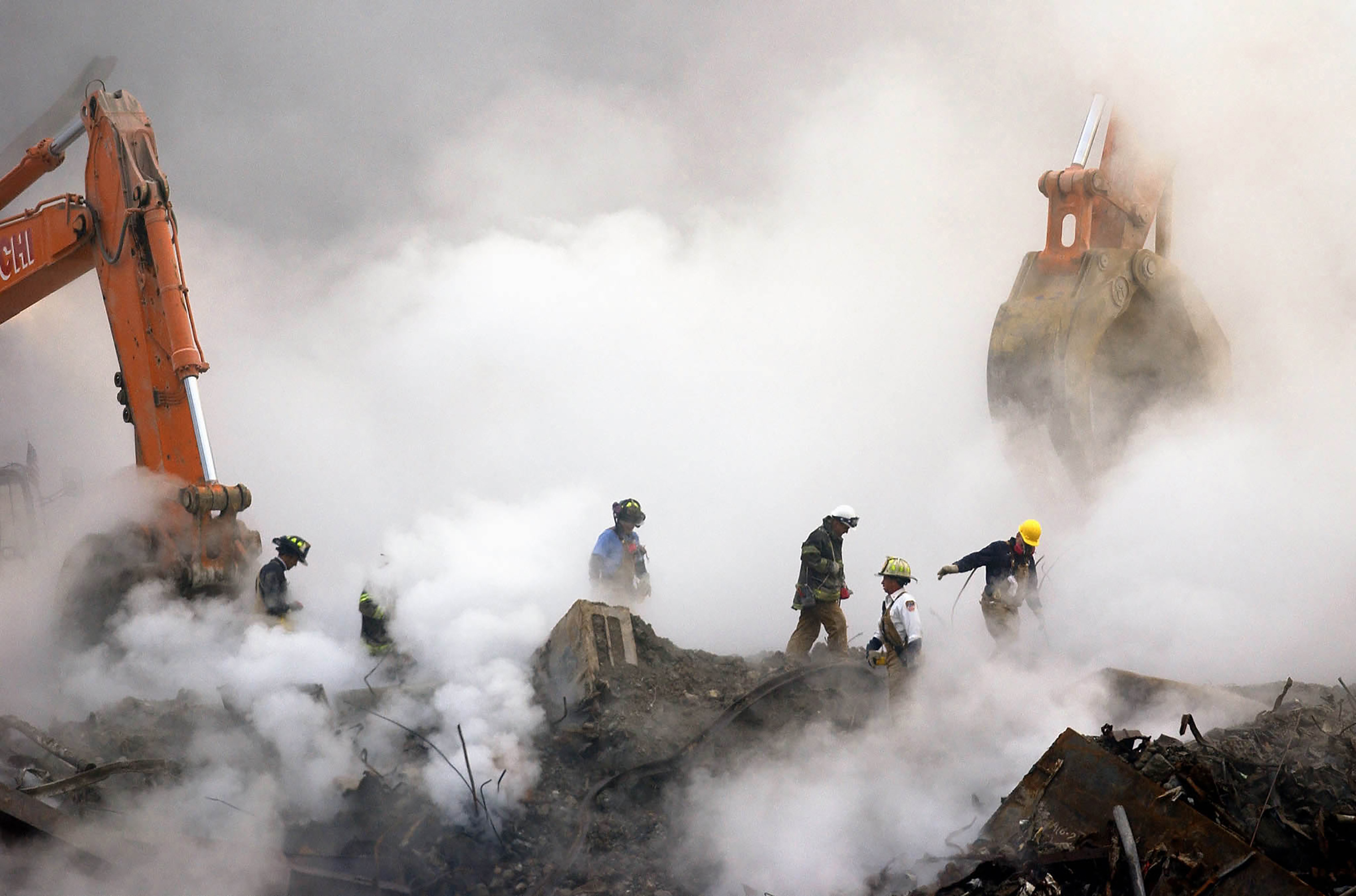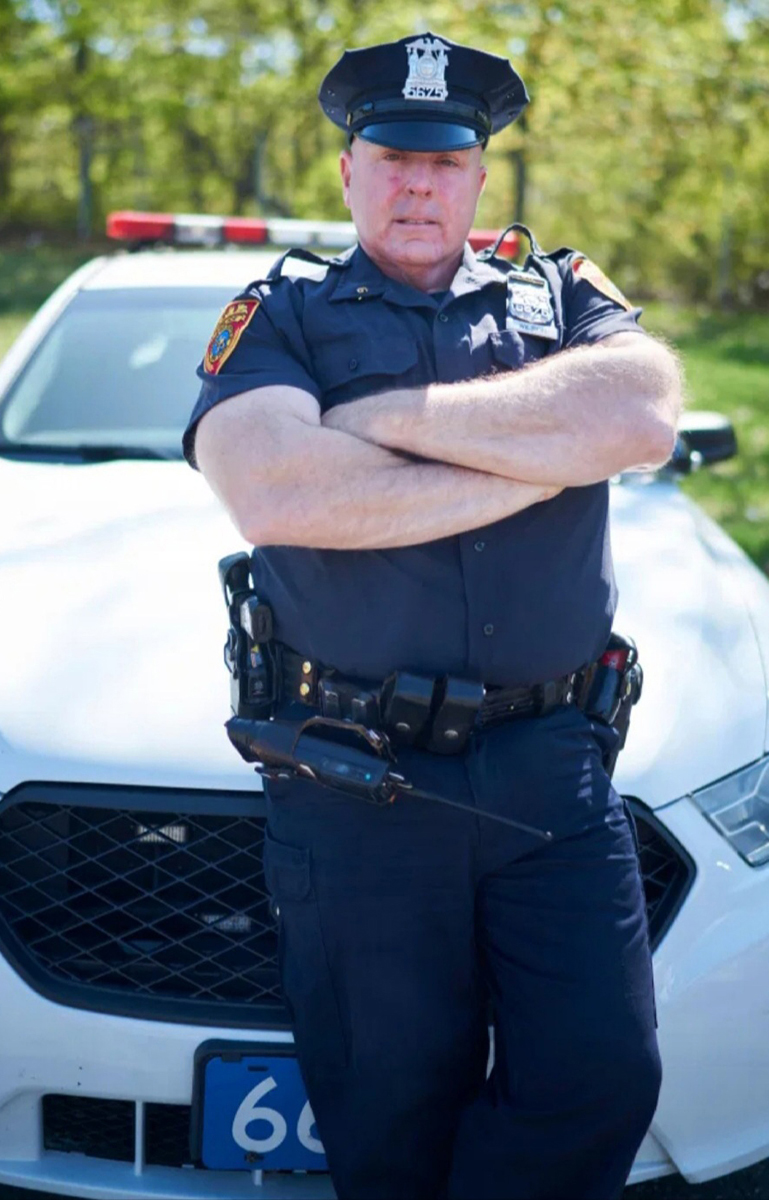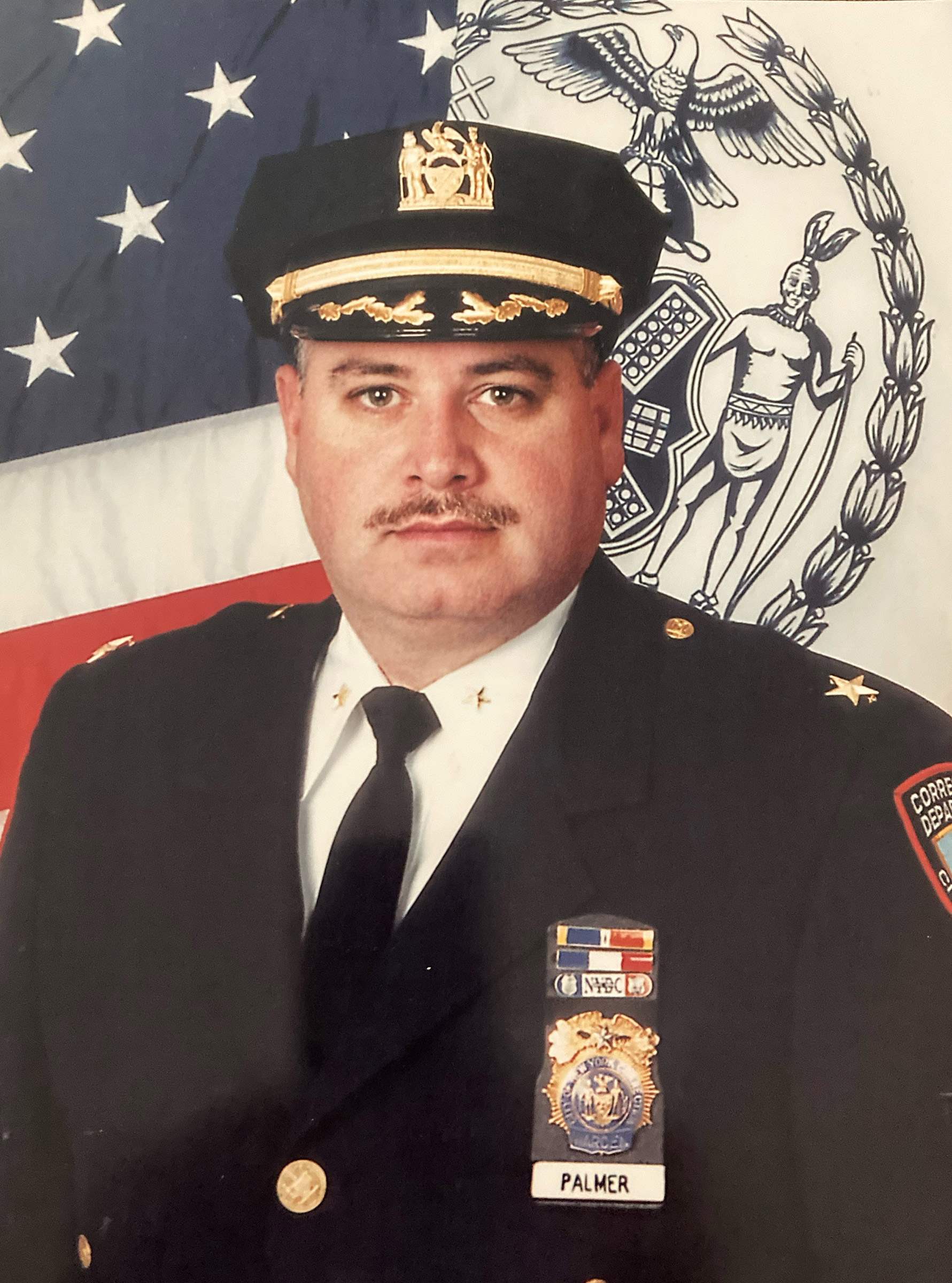[ad_1]
Dr. David Prezant was knocked totally airborne at 9:59 on the morning of Sept. 11, 2001. He didn’t see the influence coming, however he felt it when it hit—and it practically killed him.
Little greater than an hour earlier, Prezant, then the deputy chief medical officer of the Hearth Division of New York, was headed for his traditional office on the FDNY’s Workplace of Medical Affairs, simply throughout the Manhattan Bridge in Brooklyn. He had already heard {that a} aircraft had hit the North Tower of the World Commerce Heart, and he reckoned that it was an accident. By the point he reached his workplace, nevertheless, the South Tower had been struck too, and it was clear the nation was below assault.
Prezant raced to the Commerce Heart website and took a place exterior the South Tower, together with firefighters, emergency medical companies staff and different first responders, making ready to triage the injured as they emerged from the constructing. However rapidly, their place turned too harmful to carry, with flaming particles—and finally our bodies—falling from overhead. Prezant and the others determined to imagine a brand new spot a protected distance from the constructing on close by West Avenue, however no sooner had they turned to go than the tower slumped downward. The drive of the collapse slammed Prezant within the again, lifted him off his toes and hurled him throughout West Avenue, dropping him on the foot of a pedestrian bridge.
“The center of the bridge collapsed,” says Prezant, “however I got here down near the concrete basis on the proper and that sheltered me. I dug myself out and for the remainder of the day we stayed there and we triaged and handled the strolling wounded.”

Firefighters make their manner over the ruins and thru clouds of smoke on the World Commerce Heart in New York, on Oct. 11, 2001.
Stan Honda—AP
Twenty years on, Prezant continues to be with the FDNY—now as its chief medical officer. Extra considerably—to him no less than—he’s additionally the director of the hearth division’s department of the World Commerce Heart Well being Program, which was based in 2010 when Congress handed and President Barack Obama signed the James Zadroga 9/11 Well being and Compensation Act, named after a New York Metropolis police officer who died in 2006 of a respiratory illness attributed to his time on the WTC pile following the assaults. In whole, this system serves 112,042 members nationwide, together with 64,429 normal responders, 17,031 firefighters and 30,582 survivors; 65,307 members have no less than one licensed well being situation. The care is badly wanted.
Among the many FDNY’s 15,000 enrollees alone, 11,300 have no less than one licensed bodily or psychological well being situation on account of their service on and after 9/11, together with higher respiratory situations comparable to COPD and pulmonary fibrosis; gastroesophageal reflux illness; a number of varieties of most cancers; PTSD, despair, nervousness and substance abuse. Practically 3,900 of the overall group have no less than one type of most cancers; greater than 4,300 have a psychological well being situation.
“I nonetheless have someday per week the place I dedicate my whole day and most of my night to the remedy of World Commerce Heart firefighters and EMS staff who’re recovering from their sicknesses,” Prezant says. Some by no means do get better. Because the towers fell a era in the past, greater than 3,900 claims have been filed to the Victims Compensation Fund on behalf of first responders and others who’ve died of situations contracted within the mud and rubble and blood of that day.
The WTC Well being Program has been important for folks like Tom Wilson, a 52-year-old retired police officer, who helped folks evacuate throughout the Williamsburg Bridge in Manhattan. Wilson was stationed at Floor Zero beginning on Sept. 12, 2001, and later looked for human stays among the many wreckage of the buildings delivered to Contemporary Kills landfill, stirring the infamously poisonous mud solid by the falling towers.

“It bothers me, mentally, that I used to be by no means capable of rescue anybody or assist anybody, besides the precise day after I helped folks cross the Williamsburg Bridge,” says Tom Wilson.
Courtesy
Whereas Wilson had been wholesome all his life, he quickly developed a cough that wouldn’t go away. That was adopted by gastrointestinal issues, continual bronchitis, and finally a most cancers on his tongue that invaded the muscle beneath. To avoid wasting his life, the docs eliminated a 3rd of his tongue and changed it with tissue from his wrist. The surgical procedure was adopted by six weeks of head and neck radiation, which left him with radiation fibrosis syndrome.
“The scar tissue and the fibrous buildings from the surgical procedures now compresses my carotid artery,” Wilson says.
Learn extra: Twenty Years of Information Present How America Modified—And Didn’t—After 9/11
For a lot of 9/11 survivors, the emotional toll has been each bit as acute because the bodily toll. Amongst these enrolled within the federal WTC program, psychological well being issues are the third most typical class of licensed situations, after pulmonary or digestive sicknesses brought on by inhaling poisonous effluvium, and most cancers; greater than 12,500 survivors and responders have been licensed as having PTSD related to the assaults. Dr. Adriana Feder, the affiliate director for analysis on the World Commerce Heart Psychological Well being Program on the Icahn College of Drugs at Mount Sinai, explains the World Commerce Heart assaults have been uncommon as a result of the survivors and responders face the “double influence” of poisons and psychological trauma. Many survivors are coping with psychological and bodily accidents on the identical time, which may feed into one another as time goes by; as an illustration, she notes, continual ache can worsen PTSD, which in flip can result in irritation, coronary heart issues and different situations.
On the identical time, Feder emphasised that many individuals have been supported by new communities and relationships that have been solid out of tragedy. One factor that has improved Wilson’s life, for instance, is the act of giving again—working as an advocate for the WTC program, which he says has helped together with his PTSD and with the disappointment he feels that he didn’t discover anybody to rescue on the World Commerce Heart, and that he might have missed human stays when he sifted by the wreckage. “It bothers me, mentally, that I used to be by no means capable of rescue anybody or assist anybody, besides the precise day after I helped folks cross the Williamsburg Bridge,” says Wilson.
For Conrad Tinney, a former firefighter, the dying appears to begin each August. That’s when the 9/11 anniversary approaches and newspapers start writing tales concerning the loss of life of but extra first responders who have been on the website after the assaults. Tinney, who labored as a hearth marshal for the FDNY, was assigned mortuary responsibility after the towers got here down, figuring out our bodies each on the website and within the division’s morgue on 30th Avenue in Manhattan. He remembers notably the odor, which was most acute on the website when it rained. On the time he had a beard, however the sharp odor permeated it, forcing him to go clean-shaven.
“I attempted shampooing it, but it surely didn’t assist,” Tinney says. “So I shaved it off, and yeah, it was no good. I’d nonetheless odor it. I odor it now each time it rains and even will get humid.”
The odor of loss of life is simply a part of what has lingered for Tinney. He wrestled with despair within the wake of his work, for which he underwent remedy. From 2007 to 2014, he battled and overcame first bronchitis after which lung most cancers. Later he developed Hodgkin’s lymphoma, which is now in remission.
“I did two years of psychotherapy,” says Tinney. “Each time I heard a aircraft fly over my eyes went to the sky. It was simply an computerized reflex.”
For Tinney, the remedy helped; whereas he nonetheless battles bodily sickness, his emotional signs have abated. Prezant factors to instances like that in addition to the general declining price of PTSD as a typically optimistic signal, however that excellent news hides a nasty reality. “What has occurred is that for a lot of, PTSD has transitioned into continual despair,” he says.

Senate and Home Democrats maintain a information convention with first responders from New York and members of the Iraq and Afghanistan Veterans of America to announce their assist for the everlasting reauthorization of the James Zadroga 9/11 Well being and Compensation Reauthorization Act exterior the U.S. Capitol in Washington, D.C., on Nov. 17, 2015.
Chip Somodevilla—Getty Pictures
Guaranteeing that survivors get the care they want has been as a lot a political and legislative problem because it has been a medical one. The James Zadroga 9/11 Well being and Compensation Act of 2010, which established the WTC Well being Program, was virtually derailed by a filibuster by Republican senators till it mustered distinguished supporters, together with comic Jon Stewart, whose advocacy helped push it throughout the end line. Nonetheless, as this system wanted to be funded every year, advocates needed to maintain returning to the Capitol to garner assist till 2015, when it was approved to serve survivors and responders till 2090—approved that’s, however not totally funded. For so long as there’s a Congress with its budget-writing committees there will likely be haggling over tips on how to pay for take care of the veterans of that horrible day.
All the identical, it’s a superb factor that Congress has taken an extended view. John Howard, the administrator of the WTC Well being Program and the director of Nationwide Institute for Occupational Security and Well being, explains that whereas a few of the sicknesses related to 9/11 developed instantly, others, like mesothelioma, can take years to emerge. “As our members age, I believe we’re going to see interactions between situations that happen in an getting old inhabitants and the 9/11 situations,” says Howard. “So I believe it’s going to be a tougher well being profile for our members as we undergo the subsequent 20 years.”
“Difficult” might in some methods understate the issue. It’s troublesome—in some instances inconceivable—to trace the mechanism behind the ailments afflicting the survivors, unpacking how this or that contaminant led to this or that sickness. As a lot as something that’s due to the sheer quantity and complexity of the toxins.

“That is one thing that bothers me, with politicians and elected officers: that all of them wish to go on the market on that day and say, ‘Always remember.’ They do neglect” says Richard Palmer.
Courtesy
“These particulates have been coated with the chemical substances of combustion and pyrolysis,” says Prezant. “And within the first three days there have been additionally gases, vapors all through your complete complicated, after which the fires continued to burn by the top of December, releasing extra vapors.” Even after the fires have been out, contemporary poisonings went on. “Throughout the rescue and restoration efforts that lasted until the summer time of 2002, as you’re digging and uncovering crypts, that releases the identical gases that have been there on the day of 9/11.”
Learn extra: America Has At all times Struggled to Memorialize Tragedy. Some Communities Are Making an attempt to Do Higher for COVID-19
Some responders and survivors stay pissed off and offended that it took such a very long time for the nation, together with politicians, to reckon with the continued toll of the assaults. Wealthy Palmer, a retired corrections warden who served within the morgue operation in the course of the 9/11 restoration, famous that this month, 295 extra names of the lifeless—first responders who’ve misplaced their lives within the years because the assault to ailments contracted in performing their work—will likely be added to a memorial in Lengthy Island, New York. “Why do now we have to beg for folks?” says Palmer. “That is one thing that bothers me, with politicians and elected officers: that all of them wish to go on the market on that day and say, ‘Always remember.’ They do neglect.”
[ad_2]









































Discussion about this post